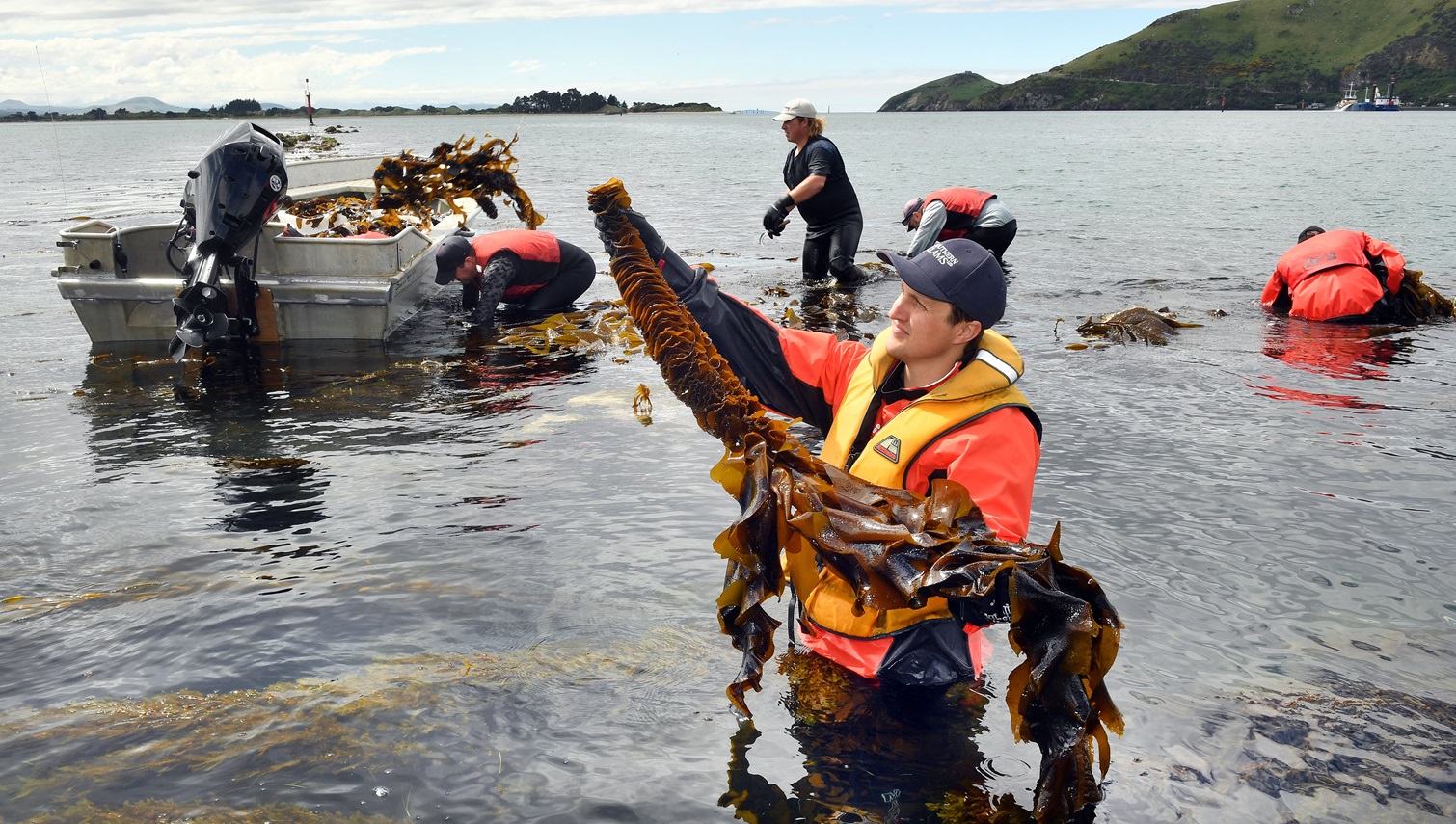Southern Clams sees an opportunity in harvesting the wakame, or Undaria pinnatifida, and joining a booming overseas market and is also looking for new uses for it.
The seaweed was accidentally introduced to New Zealand in the 1980s and is now found in most harbours around the country.
It is commonly used in South East Asia to make salads and has a variety of uses, but it overgrows and excludes native algal species, impacting the marine food chain.
Southern Clams director Alexis Belton said no-one had successfully eradicated undaria once it had invaded an area and any use of public funding to try was a waste of money.
Eradication was also a wasted opportunity for New Zealand to reap the full benefits of a promising, fast-growing and sustainable industry.
The company was investing in products made from wakame and hoped that it would eventually be able to farm the seaweed in Otago.
Southern Clams had a permit to harvest it off man-made structures, but that limited the scale of the operation and imposed a lot of costs.
"Wild harvest is appealing, but will only ever be a highly boutique industry," Mr Belton said.
"Our hope is that we will eventually be able to farm wakame in Otago and that seaweed will become an important part of the local economy."

So far, Southern Clams sold two different types of products — an edible "flake" product that was sold to Ceres Organics for human consumption and
a lower-grade product sold to a pet food supplement company because wakame had benefits for dogs, including improving their oral hygiene.
The company sent out three to four people to harvest the seaweed up to 20 times a year.
It let the seaweed grow through winter and found harvesting it fewer times a year resulted in better quality kelp.
This year, Southern Clams has taken just under 10 tonnes from the harbour.
The company also sourced it from Akaroa and Bluff, depending on the demand in the market.
Research is emerging into how the reproductive part of the plant — sporophyll — can be used in the cosmetic industry and for cancer treatment research. However, these kinds of applications are at a pre-commercial stage.
Around the world, especially in countries such as Japan, wakame is popular.
"If you go to a Japanese restaurant and you have a seaweed salad, this is what you’re eating," Mr Belton said.










